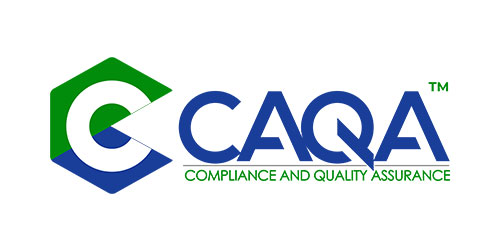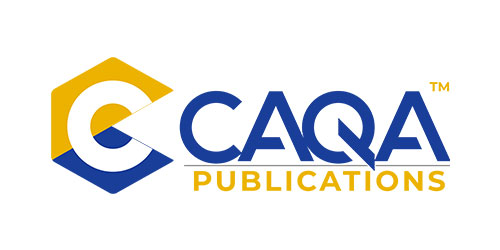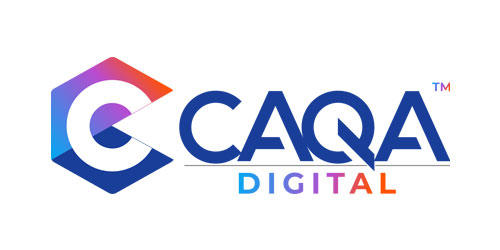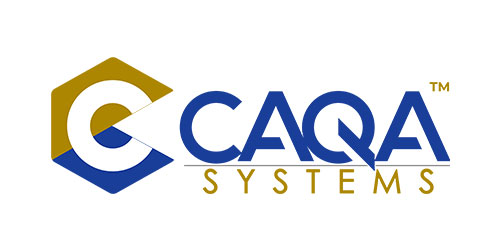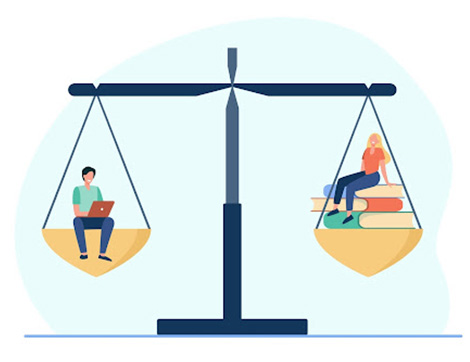
Which way of learning is most effective — online or offline?
There are many different ways to learn, and each has its own advantages and disadvantages. In this article, we’ll take a look at two of the most popular methods — online learning and offline learning — and compare their effectiveness.
Online learning is a type of distance learning that takes place over the internet. It’s a convenient way to study, as you can do it from anywhere in the world with an internet connection. You can also usually choose your own study schedule, which can be helpful if you have other commitments such as work or family.
However, one downside of online learning is that it can be quite isolating. You’re not physically present in a classroom with other students, so it can be difficult to form bonds and make friends. Additionally, you may not have access to the same resources as you would in a traditional learning environment, such as a library or experienced professors.
Offline learning, on the other hand, takes place in a physical classroom setting. This can be beneficial as it allows you to interact with other students and get immediate feedback from your instructors. Additionally, offline learning environments usually have more resources available, such as libraries and laboratories.
However, one downside of offline learning is that it can be more expensive than online learning, as you may need to pay for transportation and accommodation costs. Additionally, it can be less flexible than online learning, as you may need to stick to set class times and locations.
So, which type of learning is more effective? Let us explore.
Although online education had been a part of the collegiate experience for some time before to COVID-19’s peak, it had never been seen to such a degree as it was during that period. Educators all over the world have been put in the position of having to quickly become skilled with a number of different online platforms to be able to teach entire curriculum courses completely remotely. As a direct consequence of this, internet platforms reacted swiftly to the new advances to fulfil this new necessity. As a result, they swiftly added capabilities such as video-conferencing to the products and services they provide.
Education in both online and traditional settings
In spite of the fact that online education has been of tremendous assistance in keeping education going despite the closure of a large number of educational institutions, there remains a big amount of dispute between online and offline education.
Students can build habits of self-discipline and skills in time management through the use of online education, which also gives them access to a limitless amount of instructional materials. As long as they have access to the right resources and a dependable internet connection, students are free to determine their own pace of learning.
Offline education, on the other hand, is a more traditional kind of education that gives students the opportunity to interact face-to-face and routinely with their peers and teachers. Education that takes place without the use of modern technology is unaffected by technical concerns and provides students with a wonderful opportunity to establish and adhere to a consistent routine. However, in this so-called “digital era,” the likelihood of experiencing a disruption in one’s internet connection is extremely low. Learners, on the other hand, have the ability to download recorded classes whenever it is most convenient for them and participate in learning activities even when there is no instructor present.
The following is a list of several advantages that traditional learning does not have over online education:
You can learn at your own pace
One of the great things about online learning is that you can go at your own pace. If you need to take a break or review a concept, you can do so without feeling like you’re holding up the rest of the class. In a traditional classroom setting, it can be easy to feel like you’re falling behind if you don’t understand a concept right away.
You can tailor your learning experience to your individual needs
Another advantage of online education is that you can tailor your learning experience to your individual needs. If you’re a visual learner, you can find resources that cater to your learning style. If you prefer to learn by doing, there are plenty of online courses that offer hands-on learning experiences.
Classes taken via the internet are convenient.
The most obvious advantage of receiving an education online is how convenient it is. Because of advances in technology, it is now possible to receive an education without leaving the comfort of your own home and while wearing your favourite pair of slippers. You can go back and watch any videos that you skipped, and then you may catch up on the classes whenever you want. In a similar vein, you might make the most of your journey time by studying online while you are travelling back to your house, whether you are taking the bus or the train. To get started with online education, all you need is a device that connects to the internet (such a computer or a smartphone), an internet connection, and a platform that is designed for teachers.
Online classes are adaptive
With online classes, not only will you save time because you will not be required to travel to a physical location in order to participate in a class, but you will also have more flexibility in terms of selecting the most appropriate time to engage in training. You could also be able to find a Spanish tutor online who is willing to work with you at three in the morning. Last but not least, taking classes online gives you the flexibility to pursue your academic and professional goals at your own pace. If you have a busy work or family life, you can study at night or on the weekends when it’s convenient for you. You don’t have to worry about fitting a class into your schedule.
Online programmes are less expensive
The primary benefits of online classrooms include significant cost reductions for educational institutions as a result of the elimination of the requirement to reserve a physical place in order to deliver courses. Because of this, the learner will have to pay less for their classes. The requirement that you participate in actual classroom instruction will almost immediately drive up the costs associated with your education. When you take classes via the internet, you not only save money on the essentials like reading materials, but you also save money on other expenses like travel and food.
Online classes encourage increased interaction
Some people are of the opinion that the most practical and time-saving method of interaction is the more conventional form of learning that takes place in person. Despite this, there is no guarantee that this will always be the case. Someone who is too timid to raise a straightforward question in front of their entire class can now initiate a real-time, one-on-one conversation with their instructor. Students have the option to mute their microphones or turn off their webcams in order to participate in an online teaching session even if they do not choose to present themselves to the other members of the class.
You can access resources from anywhere in the world
One of the great things about online learning is that you can access resources from anywhere in the world. If you’re traveling or living in a different country, you can still take advantage of the same resources as someone who is taking a course in person.
You can learn from experts in their field
Another advantage of online education is that you can learn from experts in their field. Many online courses are taught by instructors who are leaders in their industry. This means that you’re getting the latest and greatest information from people who know what they’re talking about.
You can learn at your own pace
One of the great things about online learning is that you can learn at your own pace. If you need to review a concept or take a break, you can do so without feeling like you’re holding up the rest of the class. In a traditional classroom setting, it can be easy to feel like you’re falling behind if you don’t understand a concept right away.
Education can be obtained either offline or online, making the decision between the two options challenging. However, through the use of online education, both the teachers and the students are able to determine their own speed of learning, in addition to having the added flexibility of developing a schedule that is conducive to everyone’s needs. Because adjusting to an educational system that is delivered through the internet makes it possible to maintain a healthy balance between work and school, there is no need to make any sacrifices. Our methods of acquiring new abilities have also evolved alongside the development of new technology. Because of the internet, people who are interested in enhancing their knowledge and skills have access to a wide variety of resources and opportunities.
Well which one is better – It really depends on your individual needs and preferences. If you want a more flexible and affordable way to learn, then online learning might be the best option for you. But if you prefer face-to-face interaction and access to resources, then offline learning might be a better choice. Ultimately, the most important thing is to find a learning method that works for you.
2 years ago
Related News

20 August, 2018
Punjab police bust another IELTS racket
The special task force (STF) has busted another IELTS (International English Language Testing System) racket, arresting four persons for allegedly providing answer keys to candidates for Rs 30,000-Rs 40,000 each. The force received information that notorious gangster Manga has been involved with this racket from last few days. He reportedly worked for the Davinder Bambiha […]
6 years ago

20 August, 2018
Career Calling International – Your Quality Provider
Quality Services Since client satisfaction is one of our priorities, we go to great lengths to implement practices that guarantee an efficient, fluid and friendly relationship, promoting a culture of service among our collaborators. Professional People We in Career Calling International work closely with the client throughout the project life-cycle to tailor our services to […]
6 years ago

18 September, 2019
Congratulations VOCEDplus for completing 30 years
Courtesy: VOCEDplus! It all started in 1989, with two print publications, Initiatives in Technical and Further Education and TAFE Projects in Progress. These articles were merged to become the Vocational Education and Training Research Database, a resource for the TAFE sector available through print and diskettes. Over the past three decades, the database has undergone […]
5 years ago

30 November, 2020
What happens when one of the electives in a qualification has been superseded?
There is great confusion in the VET sector, especially now with all the changes that have been made to the BSB, ICT and HLTAID qualifications. We are constantly answering this question: If an elective has been superseded in a qualification, but the old unit is still listed as the elective, which one am I supposed […]
3 years ago

8 August, 2021
RTO Survey: Mandatory Work Requirements for Certificate III in Individual Support
The Human Services Skills Organisation is conducting a survey about Mandatory Work Placement for students completing the Certificate III in Individual Support. RTOs delivering this qualification are encouraged to share their feedback to address their experiences in accessing the mandatory work placements. For more information, Click here.
3 years ago

8 August, 2021
Some ESOS courses are no longer required to be registered with CRICOS
It is now allowed for registered training providers to offer certain supplementary courses to international students without having those courses listed on the Commonwealth Register of Institutions and Courses for Overseas Students (CRICOS). The Education Services for Overseas Students (Exempt Courses) Instrument 2021, which exempts some supplementary courses from the ESOS Act, took effect on […]
3 years ago

8 August, 2021
The Covid-19 surge in Australia is threatening plans for student return
The state government of New South Wales has placed on hold its proposal to allow international students to return home after the state government unveiled a trial plan for a limited-phased return of international students in June. As a result of the most recent lockdown, there has been a pause in the implementation of this […]
3 years ago

22 August, 2021
Celebrating the 12th anniversary of Career Calling
Can you believe Career Calling has been in operation for 12 years? This is a fantastic opportunity to thank everyone who has contributed to making Career Calling what it is today. Here are a few words from our CEO, Sukh Sandhu, to commemorate the occasion: What began as a dream, has grown into Career Calling […]
3 years ago

22 August, 2021
Scorm, HTML5 and m-learning? Need help?
Until recently the high degree of interactivity, immersive graphics, and fascinating animations of Adobe Flash made it one of the most popular authoring tools for eLearning courses. With fewer smartphones and tablets being able to support Flash, HTML5 and SCORM compliant files are quickly becoming the preferred formats and standards among eLearning professionals. SCORM compliant […]
3 years ago

22 August, 2021
Education standards and politics
We are all well aware that in any country, it is hard to separate politics from educational issues and standards. However, it is quite sad when politics begins to have an impact on education for a variety of negative reasons. Educational standards should be upheld at all times, but using education to score political goals, […]
3 years ago

3 September, 2021
VET Qualifications Reform Survey – The world of VET is changing again including the units of competency
The world of vocational education and training is changing once more, and this includes the structure of units of competency. The Department of Education, Skills, and Employment is participating in consultations on the new structure, methods, and procedures connected to the vocational education and training sector over a period of 1.5 years as part of […]
3 years ago

11 September, 2021
What are the specific programs selected for Skill First 2022 for new applicants?
Skill First -2022 List of Specific Programs Do you know that one of the main eligibility criteria to apply for the 2022 Provider Selection Process is that your RTO must have delivered training (in the course that you seek to deliver under the contract) in one or more Programs of the 2022 List of Specific […]
3 years ago

19 September, 2021
Course delivery using different delivery modes
What delivery modes can you use to deliver training? Face to face/ on campus/ classroom based delivery It is learning in a classroom environment with qualified trainers who guide the learners through high-quality learning and assessment activities. The trainer usually teaches all of the units of competency content to a small group of learners, with […]
3 years ago

4 October, 2021
New job opportunities!
JOIN THE RECRUITMENT REVOLUTION Operations Manager (Mullumbimby, NSW) Sales Representative (Surry Hills, NSW) Compliance Manager (Wollongong, NSW) RTO Senior Office Administrator (Morayfield, QLD) Barber Trainers (Chermside, Brisbane West, Ipswich, Toowoomba) CHC Trainers (Melbourne, VIC) BSB Trainers (Melbourne, VIC) FNS Trainers (Melbourne, VIC) ICT Trainers (Melbourne, VIC) View all jobs Looking for a new opportunity? Whether […]
3 years ago

4 October, 2021
Contextualisation – Why you must contextualise the training and assessment resources.
Understanding contextualisation Contextualising assessments and learner materials is one of the most thought-provoking tasks that RTOs face. Many RTOs are deemed non-compliant due to their contextualisation ‘methods’. What is contextualisation, what is the right way to do it, how is it done, why do RTOs conduct it incorrectly? Before explaining what is contextualisation, let’s first […]
3 years ago

4 October, 2021
Validation Demystified – Part I
Validation is arguably the central pillar of the VET practice and has a valued place in the education system. It is one of the few compliance requirements that influence and is accountable for more than a dozen standards within the Standards for RTO 2015. As such, validation is the much-studied, crammed and piloted concept of […]
3 years ago

4 October, 2021
Different types of disruptions in training and education businesses: What are they and how can they impact You?
In a world where disruption is happening at a lightning speed, the question of how to thrive in this fast-paced environment is increasingly important. There are many who have been disrupted out of business and there are many more who would be disrupted in the near future. Disruption occurs when someone or something does something […]
3 years ago
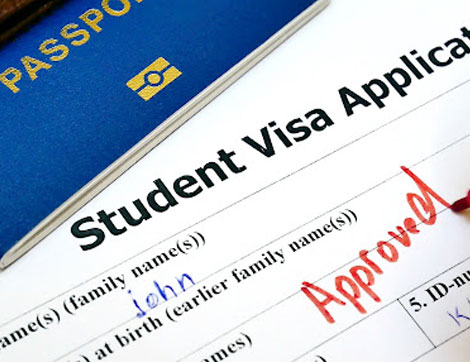
4 October, 2021
Australian Government has approved the International student return pilot programme
In a joint decision, the governments of Australia and New South Wales have authorised a second significant student return pilot, which will see up to 250 international students per fortnight returning to the state to continue their studies. According to current plans, the pilot will begin accepting students in December 2021 and will operate within […]
3 years ago

4 October, 2021
How to create a compliant and effective session plan
We are confident that you have heard the expression (and perhaps even used it yourself), “Failure to plan is planning to fail”. When it comes to the facilitation of efficient training, this is undoubtedly true. Consider the following scenario: you’ve just delivered a training session to a new group of students. Unfortunately, things didn’t turn […]
3 years ago

14 October, 2021
Update related to AQF Framework
We’d like to provide an update on the new AQF framework, currently under development. The Review of the Australian Qualifications Framework was completed at the end of 2019. AQF Review provided 21 recommendations aimed at ensuring that the AQF continues to serve its intended purpose now and in the years to come. Changes to the […]
3 years ago

14 October, 2021
In a recent ruling, the court ordered telecommunication firms to discontinue “assignment help” service.
It is the first time that an Australian higher education regulator has successfully obtained an injunction against a foreign essay mill, as part of the implementation of a 2020 rule that outlaws contract cheating services. In a recent court victory, the Tertiary Education Quality and Standards Agency (Teqsa) managed to prohibit access to the website […]
3 years ago

14 October, 2021
Google will train more than 40 million people in cloud computing skills.
Google has said that it will train more than 40 million individuals in Google Cloud skills as a result of the pandemic’s acceleration of digital transformation for organisations across a wide range of industries that are experiencing a skills shortage. As part of its efforts to reach this aim, the tech giant introduced Google Cloud […]
3 years ago

14 October, 2021
The role of online education is evolving due to Artificial Intelligence (AI).
With the rise of Artificial Intelligence, the role of online education is changing. AI-based tools can automatically generate and grade assignments, meaning that students no longer need to spend hours and hours on their essays and tests. AI has been a breakthrough in the education industry. It has the power to change the world of […]
3 years ago

14 October, 2021
Edu Learning – Your door to professional development opportunities
We would love to have you join our professional development retainer agreement services or individual professional development opportunities through Edu Learning. Our organisation works with the aim to help you grow your skills in a fun and interactive way. The benefits of joining our organisation are numerous, from getting tips from VET experts and industry […]
3 years ago

14 October, 2021
ASQA publishes scoping study on VET in schools
The scoping study on vocational education and training delivered to secondary school students was issued by the national regulating agency in order to protect the quality of VET delivery. It is ASQA’s role as national regulator for VET to work in partnership with training providers to guarantee compliance with the Standards for Registered Training Organisations […]
3 years ago

14 October, 2021
The simulated environment for online learning
A simulated environment is an artificial representation of a real-world environment. Training organisations are increasingly turning to simulations for training purposes. The point of simulations is to provide learners with an environment that is as close as possible to the real-world experience. They simulate reality and give them the opportunity of practising what they learn. […]
3 years ago

14 October, 2021
The authenticity of assessments in an online learning environment
The authenticity of assessments is a term that is often used in the education sector. It is usually used to refer to how authentic or genuine a given assessment was. Although there are no clear-cut definitions for the authenticity of assessments, the following are two possible definitions: Authenticity means that a given assessment was created […]
3 years ago

14 October, 2021
The features of high-quality online learning
Online learning is continuing to gain popularity with people seeking to learn new skills and train in the comfort of their homes. With the rapid advancement in technology, it has become easier for students to learn online compared to traditional classrooms. The main features of high-quality online learning are convenience and flexibility. The courses can […]
3 years ago

14 October, 2021
The Concept of Immersive Education
Immersive education is a form of online education where you create a virtual learning environment and immerse students in the content. It is also called “learning outside the box” because it helps students learn in different ways such as learning by doing, creating, experimenting and creating digital content. The concept of immersive education is about […]
3 years ago
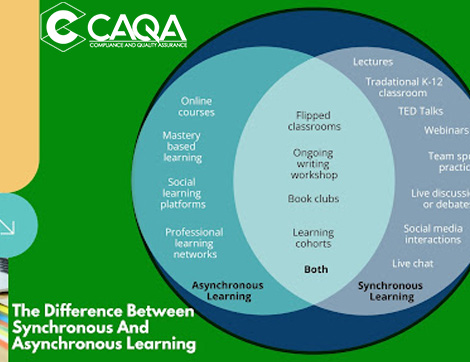
14 October, 2021
Synchronous and asynchronous learning environments
Training organisations are getting more creative when it comes to how they help learners. They are working to find techniques, technologies and tools that can include both synchronous and asynchronous learning. The online learning experience has evolved over the years. The tools used in the past, like e-learning websites, have been replaced by newer technologies […]
3 years ago

14 October, 2021
Online learning – Understanding the learner experience continuum
Online learning has become one of the most used forms of learning in the VET sector. It is a flexible and convenient way for people to learn new skills, knowledge, and information. Learning online is a process that many organisations are starting to take more seriously. They are trying to figure out how to best […]
3 years ago

1 November, 2021
Queensland has set a new national record for the number of women entering the construction industry.
According to data released this week by the National Centre for Vocational Education Research (NCVER), Queensland has achieved the highest-ever number of females enrolling in a construction trade apprenticeship of any state or territory in the country. Furthermore, according to the data, the overall number of female construction apprentices in the Sunshine State is larger […]
2 years ago

1 November, 2021
Update about Victoria’s International Student Arrivals Plan
International students will start returning to Victoria by the end of 2021 under the Victorian Government’s International Student Arrivals Plan, which has been endorsed by the Australian Government. The plan was developed in consultation with Victorian universities, and industry peak bodies from across the international education sector, including the Independent Tertiary Education Council Australia, the […]
2 years ago

1 November, 2021
How to create a compliant and effective self-study guide
A self-study guide is a tool that can be used to help a learner extend their learning. It can be effective when learners begin to prepare for a summative assessment. The self-study guide can also be used by learners as a document for reflection of learning, identification of strengths and weaknesses, and to build on […]
2 years ago

1 November, 2021
Why a collaborative regulatory body is important for the training and education industry
Training and education have always been an industry that is surrounded by regulations, rules, and policies. The regulatory body provides a foundation for the training and education industry. Collaboration is vital for success and it is important that the regulatory body has a collaborative and transparent approach in order to improve governance and accountability. A […]
2 years ago

1 November, 2021
How to become a profitable training business? (Part 1) – An article by CAQA Skills and Edu Learning
The training industry is growing rapidly due to the growth in businesses requiring a skilled workforce. Training businesses are however operating in a highly competitive market where they have to keep up with the changing needs of their customers and need to make profits in order to survive and be sustainable. There are multiple ways […]
2 years ago

1 November, 2021
Direct observations in online learning environments
In order to get an accurate picture of how a learner is performing, trainers and assessors should try to conduct personal observations or direct observations. The problem with doing this is that it can be difficult for trainers and assessors to observe students if they are not performing or demonstrating their skills in a traditional […]
2 years ago

1 November, 2021
New TAE 22B E-learning and E-assessment – Open for public review and feedback
The following training products are now available for public review and feedback: TAEDEL405 Plan, organise and deliver e-learning (unit of competency) TAEASS404 Conduct e-assessment of competence (unit of competency) TAESS00019 E-learning and E-assessment Skill Set You can download and access the materials through Draft-E-learning-and-E-assessment-Training-Products Click on the following link to provide your feedback to PWC […]
2 years ago

1 November, 2021
Driving organisational change to adopt high-quality online training
Introducing online training into your business through the use of technology and tools can help you increase productivity, reach new potential customers, provide great flexibility, increase sales, and help create more effective and productive learning sessions. It is, however, time-consuming and laborious to get every employee on board in an organisation that has never offered […]
2 years ago

14 December, 2021
Interview with John Molenaar, Quality and Compliance Auditor
John Molenaar is an education professional who started his career in teaching with positions as a primary and secondary teacher. In the late 1980s/early 1990s, he held roles in education organisation management as Executive Director of the Gould League of Victoria and the John Gardiner Centre. In the mid 1990’s John started his career in […]
2 years ago

31 January, 2022
How COVID-19 changed the Australian education and training sector (Part – 1)
The education and training sector in Australia is one of the largest industries in the Australian economy. It employs almost 1.1 million people (8.4 per cent of the total workforce). Approximately half of Australians in the projected secondary school leaving age are enrolled in some form of education or training, whether formal or informal. Much […]
2 years ago

31 January, 2022
How online courses can help you become a skilled worker
Online courses are popular in the workplace. They provide flexibility and convenience for people who want to learn something in either their own time or during work hours. Online courses have been around for decades, and they have recently started to gain real traction. There are many different types of online courses available that can […]
2 years ago

31 January, 2022
Australian student visa changes in 2022
As a result of the Covid-19 pandemic, the Australian government will offer visa rebates to students and backpackers who wish to visit the nation in an effort to fill a record number of vacant positions. Visitors to Australia who enter on a student or working holiday visa, according to Prime Minister Scott Morrison, will receive […]
2 years ago

20 February, 2022
WA has allocated $16 million for international education
As part of a new support package, the state of Western Australia has earmarked around AUS$16 million to assist the state’s international education sector. It was announced that a support programme will be implemented after the state delayed the reopening of its borders due to the Omicron variant earlier in February. As part of the […]
2 years ago

20 February, 2022
Car-makers welcome electric vehicle technology certification offered through vocational training institutions in Australia.
An initiative to raise the level of certification in electric vehicle technology offered by vocational training institutions in Australia has been hailed by a number of automotive manufacturers. Despite the fact that all of the companies have extensive internal training programs of their own, they recognise the importance of equipping technicians to service, diagnose, and […]
2 years ago

20 February, 2022
From February 21, all fully vaccinated international students are permitted to return to Australia.
Following one of the world’s most extensive COVID-19 isolations, the Australian government will open its doors to all international students who have received a full COVID-19 vaccination. According to Erudera.com, the decision will take effect on February 21 and will have an impact on over 500,000 international students currently enrolled in the country, as well […]
2 years ago

20 February, 2022
As the number of overseas students declines, Australia faces the prospect of losing future skilled workers and citizens.
When so many international students left Australia, think about what the country lost. Approximately $40.3 billion was contributed to the economy by them in 2019. Approximately 250,000 jobs in Australia were supported by international education. In some sections of the higher education industry, border closures resulted in a reduction of enrollments of up to 70{811251a11785699196b1edfb998e8df43131d83f2e2fc9971f96b5821112af2c}. […]
2 years ago

20 February, 2022
ASQA has begun a four-year program of collaboration with the industry to co-design a model for self-assurance.
For the Australian Skills Quality Authority (ASQA), ORIMA Research will conduct a comprehensive consultation process with vocational education and training providers in early 2022 on behalf of ASQA. The information gathered will be used to help establish a self-assurance model for the industry. Providers were urged to register their interest in participating in this consultation […]
2 years ago

20 February, 2022
Everything, even academic research, will be changed by the metaverse.
We are living in a time of rapid change. Technology has been disrupting the way we live and work since its invention. In this article, we will discuss how the metaverse is changing everything, even academic research. The idea of a metaverse has been part of science fiction for decades, but the term is on […]
2 years ago
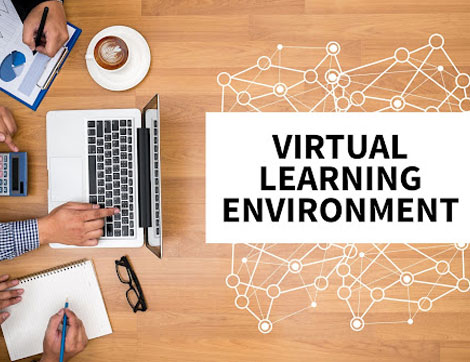
20 February, 2022
Students can take advantage of services offered to them throughout virtual learning and beyond.
Students should not feel limited by the opportunities available to them. Virtual learning services are just one of the many ways that students can take advantage of. Virtual Learning: Virtual learning is an immersive, interactive, and collaborative approach to learning. It is based on the idea that learners can access knowledge from anywhere at any […]
2 years ago
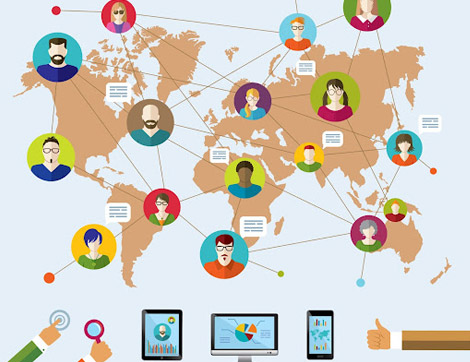
20 February, 2022
According to ResearchAndMarkets.com, more personalised learning opportunities will present opportunities in the global e-learning market by 2030.
The Global E-Learning Market report has been added to ResearchAndMarkets.com’s offering. E-learning is a learning system based on formalised teaching with the help of electronic resources. E-learning saves both time and money as video recorded lectures are easy to record and repeat whenever necessary. In addition, it helps to manage the schedule of students as […]
2 years ago

20 February, 2022
How artificial intelligence and machine learning will change the education and training industry
There’s a lot of talk about artificial intelligence and machine learning today, but what exactly is it? Machine learning is a process of developing computer programs that can learn from data without being explicitly programmed by a human. This gives it the ability to process large amounts of data and find patterns within them. Its […]
2 years ago

20 February, 2022
CAQA Online forums, CAQA Info for maintaining your compliance and regulatory knowledge
CAQA Online forums provide information for RTO professionals. The purpose of the forums is to support compliance and regulatory knowledge with the help of other professionals in the field. Some of the benefits of subscribing to our online forums are that it provides access to knowledge sharing and networking opportunities among peers in the vocational […]
2 years ago

20 February, 2022
Reasonable adjustments in the learning environment
What is a reasonable adjustment? In vocational education and training (VET), the term reasonable adjustment refers to adjusting the learning environment or making adjustments to the training or assessments offered. This is to provide a student with additional needs and/or requirements the same learning opportunities as a student with no barriers to learning. Simple changes […]
2 years ago

24 March, 2022
Review of the Education Services for Overseas Students (ESOS) legislative framework
The Review will examine how the ESOS regulatory framework can evolve to support Australia’s international education sector to innovate and diversify, while continuing to protect Australia’s international reputation as a quality education destination. On 10 February 2022, the Department launched a public consultation as part of the Review process to seek views on the following […]
2 years ago

24 March, 2022
Supporting Students with Disabilities in Vocational Education and Training
The Department of Education, Skills and Employment has funded the Australian Disability Clearinghouse on Education and Training (ADCET) to carry out three projects as part of the program of works to transform the capacity of and provide support to a diverse range of Vocational Education and Training (VET) providers to assist them in supporting students […]
2 years ago

24 March, 2022
Edu Learning – Your door to professional development opportunities
We would love to have you join our professional development retainer agreement services or individual professional development opportunities through Edu Learning. Our organisation works with the aim to help you grow your skills in a fun and interactive way. The benefits of joining our organisation are numerous, from getting tips from VET experts and industry […]
2 years ago

24 March, 2022
The Department of Education, Skills and Employment (DESE) has launched a free, expedited skills assessment framework for skilled migrants.
The Australian Government has identified skills shortages in the job market in some industries, which have been exacerbated by border closures as a result of the COVID-19 crisis, as a problem that requires immediate attention. The gravity of the situation has prompted the creation of one-of-a-kind and significant incentives that might aid around 9,500 onshore […]
2 years ago

24 March, 2022
A new study indicates that 82 per cent seek gender and sexuality diversity subjects such as Relationships and Sexuality Education (RSE) in education.
According to a new study released by Western Sydney University, 82 percent of Australian parents want gender and sexuality diversity discussed in the classroom. The study, conducted by Associate Professor Jacqueline Ullman and Associate Professor Tania Ferfolja from the School of Education, is the first of its kind in Australia to comprehensively survey parents on […]
2 years ago

24 March, 2022
In February 2022, international student arrivals in Australia reached a ‘super-strong’ level.
According to data released by the Australian Bureau of Statistics, 28,030 international students arrived in Australia in January 2022, an increase from 27,670 students who arrived in the same month the previous year. At the beginning of February, the Minister for Immigration, Citizenship, Migrant Services, and Multicultural Affairs, Alex Hawke, stated that Australia is welcoming […]
2 years ago

24 March, 2022
For Australia’s future, incorporating cyber security into our education system is “critical.”
As Australia increasingly moves towards a digital economy, it is becoming more and more important for our young people to be equipped with the skills and knowledge to protect themselves and our nation from cyber threats. That’s why the Australian government is working hard to promote cyber security in our schools, vocational education and training […]
2 years ago

24 March, 2022
What is the criteria that defines a successful trainer and assessor?
A trainer is someone who has the skills to teach others and an assessor is someone who has the skills to assess the competency of someone. A good trainer and assessor have the ability to understand their student’s needs, provide relevant content and also help the students learn new skills in a short period of […]
2 years ago
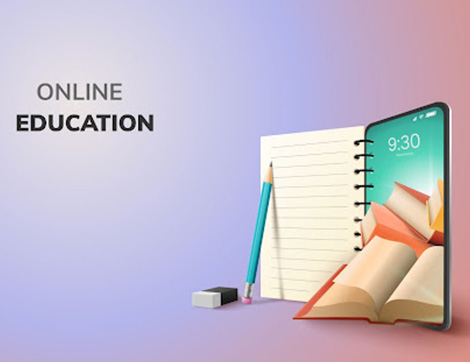
24 March, 2022
Importance of providing a good educational environment to online learners
It is important to provide a good educational environment for online learners for several reasons. Education should be provided in a way that is beneficial for all learners, both those who have no knowledge of anything at all and those who have a lot of knowledge about a specific topic. The educational environment should also […]
2 years ago

24 March, 2022
What characteristics define a successful online learner?
Successful online learners have a few qualities in common with one another. They are self-motivated and disciplined, have solid time management abilities, have basic technical skills, and are effective communicators, among other characteristics. Self-motivated and disciplined Self-motivation is essential for achieving success in any effort, but it is particularly critical in online learning. Because online […]
2 years ago
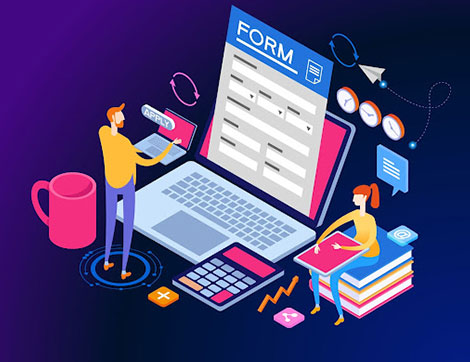
24 March, 2022
Requirements to enrol learners in your courses
There are specific prerequisites that must be met prior to student enrolment or the beginning of training and assessment, whichever occurs first. In addition, the RTO should advise the prospective learner on the training product that will best meet his or her needs while taking into consideration the individual’s existing skills and competencies. So what […]
2 years ago
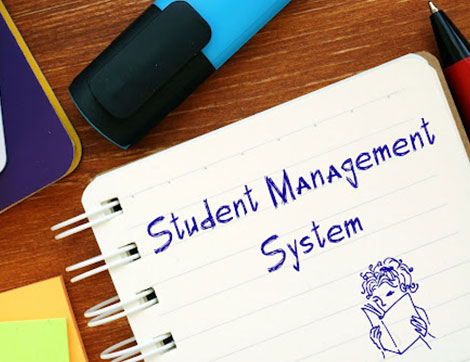
25 April, 2022
What to look for when choosing a student management system for a training institution
What is a Student Management System (SMS)? The student management system is basically a software to create, manage and track student related data and activities and report the required information to regulatory bodies. SMSs is the short form of student management systems. SMSs are now developed to handle practically every facet of a training organisation. […]
2 years ago

25 April, 2022
How student welfare and support in Australia are governed by a set of regulations.
Student welfare and support is an important part of any education system, and Australia is no exception. Australia has a number of regulations in place to ensure that student welfare and support are maintained at a high standard. These regulations are outlined in a number of Acts and standards, such as: Standards for Registered Training […]
2 years ago

25 April, 2022
Training providers must keep up with industry trends.
Organisations that provide training and assessment must keep up with the latest trends and developments in their industry if they wish to stay ahead of the competition. Additionally, they need to be able to provide learners with the necessary skills and knowledge to work effectively in a globalised economy. Training providers must keep up with […]
2 years ago

25 April, 2022
Quality training is one of the best investments a training organisation can make.
One of the most important investments a training organisation can make is in quality training resources. Training resources that meet training package requirements, industry needs and regulatory requirements can help ensure that your organisation provides effective and compliant training. High-quality training resources are essential for: Delivering an effective and consistent learning experience for your students; […]
2 years ago

25 April, 2022
Issuing qualifications to your own trainers, assessors and staff members
Qualifications are important. They ensure that trainers and assessors are current and competent in their fields. They also help to put a check on the quality of training provided by trainers and assessors. You may be tempted to issue qualifications to your own trainers, assessors and staff members for a number of reasons such as […]
2 years ago
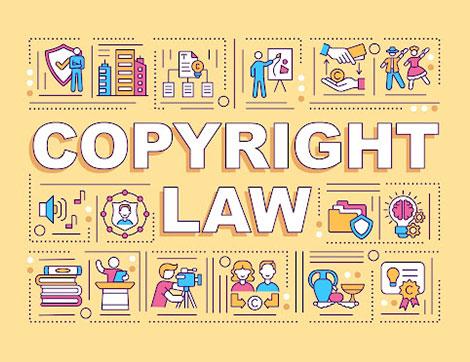
25 April, 2022
In what ways does copyright legislation apply to training organisations?
Copyright law is a set of laws that protect the intellectual property rights of authors. It prohibits the copying, distribution, performance, and display of other people’s work without their permission. Copyright law applies to training organisations in a number of ways as they are not exempt from copyright law. The training materials they produce can […]
2 years ago

25 April, 2022
Strategic Review into First Aid units of competency in Western Australia
The Training Accreditation Council’s risk management approach to regulation is to consider the risks to the quality of vocational education and training outcomes on an ongoing basis. Underpinned by the Council’s Risk Framework, stakeholders are informed about the Council’s regulatory focus areas via its Regulatory Strategy. The Council’s Focus on Quality: Regulatory Strategy 2021-2023 identifies […]
2 years ago

25 April, 2022
Practical demonstration – What to look for?
When observing a student during a practical demonstration, it is important to focus on both their technical ability and their methodology. For example, you should pay attention to whether the student is using proper technique when carrying out tasks, and whether they are following the correct steps in the demonstration. Additionally, it is also important […]
2 years ago

25 April, 2022
Blended learning – The best of online and offline learning
Blended learning is a teaching approach that combines both online and offline learning. It offers the best of both worlds – the flexibility and convenience of online learning, combined with the personal touch and social interaction of offline learning. This approach has many benefits, including the ability to cater to different learning styles and providing […]
2 years ago
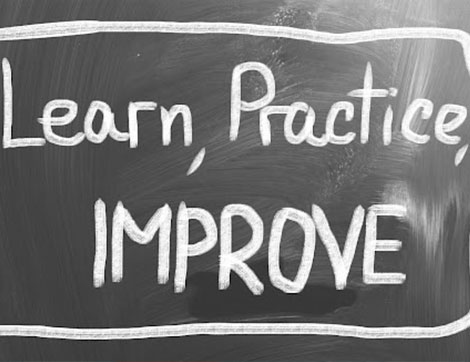
22 May, 2022
Some lessons learned from working in the vocational education and training industry
The vocational education and training (VET) sector has a lot to offer students, employees and employers alike. It can provide pathways into careers, as well as upgrade existing skills and knowledge. There is a growing demand for VET courses, both in Australia and overseas. This means that there are plenty of opportunities for people who […]
2 years ago

22 May, 2022
Why not being prepared in the vocational education and training industry is dangerous
If a training organisation is not prepared to either research, prepare, deliver, or evaluate the training program, it could be putting both itself and its students at risk. For example, imagine you’re a trainer who’s been asked to deliver a new program on short notice. If you’re not prepared, you may not be able to […]
2 years ago

22 May, 2022
The key stakeholders involved in the Australian vocational education and training sector
The education and training sector is vital to the success of any economy. It is responsible for providing the skills and knowledge necessary for people to participate in the workforce. The sector is also important for ensuring that individuals have the opportunity to develop their skills and abilities throughout their careers. There are many different […]
2 years ago

22 May, 2022
Compliance is not one person’s responsibility in a training organisation
In a training organisation, compliance is not just one person’s job. Compliance is the responsibility of everyone in the organisation, from the CEO down to the entry-level staff member. Sure, there may be someone whose job it is to oversee compliance related matters, but that doesn’t mean that they are the only one responsible for […]
2 years ago

22 May, 2022
Why the excessive bureaucracy of the government is bad for education and training industry.
If you are in the business of education and training, then you know that bureaucracy can be a real pain. It seems like every time you turn around, there is another government regulation or requirement that you have to deal with. And each one of these regulations comes with its own set of paperwork and […]
2 years ago
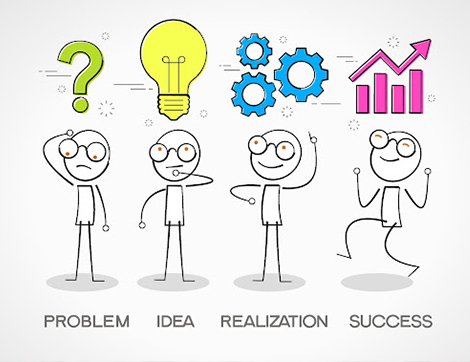
22 May, 2022
Why should you invest time doing an assessment of your training organisation?
Investing time in assessing your training organisation can be extremely beneficial. It can help you to identify areas that need improvement, as well as any potential areas of growth. Additionally, conducting an assessment can help to ensure that your organisation is providing the best possible training experience for its students. Ultimately, this can lead to […]
2 years ago

22 May, 2022
Scholarships for international students to study in Western Australia.
It’s possible that in the near future, international students may be able to study in Australia without having to pay full or partial tuition fees. According to a report from the Times of India, the state government of Western Australia (WA) is planning to invest 41.2 million Australian dollars in an effort to strengthen the […]
2 years ago
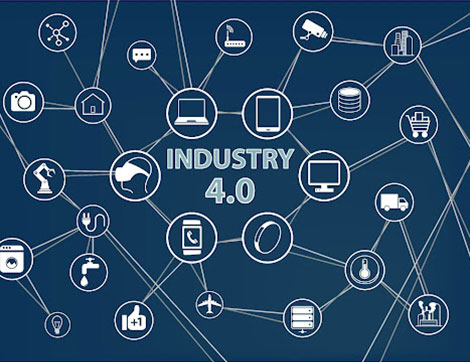
22 May, 2022
How does technology in education based on the fourth industrial revolution differ from earlier approaches?
Was it ever brought to your attention that many of the working sectors or job titles upon which today’s children will construct a career in the future do not yet exist or have not yet been invented? Industry 4.0 has brought about many changes in the field of education. Cyber-physical systems, big data, and artificial […]
2 years ago

22 May, 2022
Developing Interpersonal Skills as a Trainer/Assessor is Critical in the Training and Education Industry.
The training and education industry is a vital part of our society. It helps to prepare people for work and to continue learning throughout their lives. Interpersonal skills are essential for any individual working in the training and education industry. They allow you to build positive relationships with both your students and your colleagues, which […]
2 years ago

12 June, 2022
The education and training portfolios have received key ministerial appointments
The key portfolios of education, skills and training each have a new minister thanks to the appointments made by the Prime Minister, Anthony Albanese. Tanya Plibersek, who held the portfolio in the Opposition and will now transfer to Environment and Water, has been replaced as Minister for Education by Jason Clare, who acted as Labor’s […]
2 years ago

12 June, 2022
Develop high-quality e-learning content that considers the demographics of the learners.
As more and more training organisations move their operations online, the demand for high-quality e-learning content is skyrocketing. But what makes for high-quality e-learning content? And how can you ensure that your content considers the demographics of your learners? There’s no one-size-fits-all answer to these questions, but there are some general principles that you can […]
2 years ago

12 June, 2022
The different types of interactivity for your learning and assessment resources
Interactivity is a key aspect of eLearning. It can help to engage learners, making the learning process more enjoyable and effective. There are different types of interactivity that you can use in your learning and assessment resources. Here are some examples: Type 1: Active Interactivity This type of interactivity requires the learner to take some […]
2 years ago
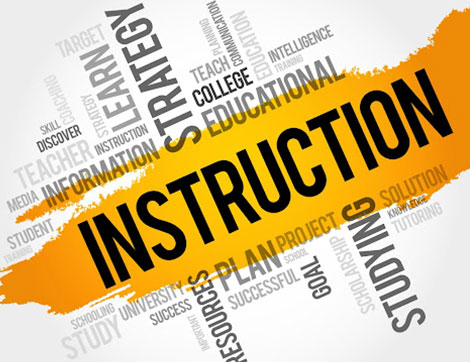
12 June, 2022
Instructional design concepts for electronic materials
There is no question that the way we design and develop instructional materials has changed dramatically in recent years. The prevalence of digital media and advances in technology have had a profound impact on how we create and deliver instruction. In many ways, these changes have made our jobs as instructional designers more challenging. We […]
2 years ago

12 June, 2022
Education, training, and audits are essential to ensure compliance.
It is essential for training organisations to have systems and procedures in place to ensure compliance with regulatory requirements. Education, training, and audit are key components of these compliance systems. Education ensures that employees are aware of their responsibilities and the consequences of non-compliance. Education on what is compliant and what is not compliant is […]
2 years ago

27 June, 2022
Privacy policy for your training organisation
There are strict privacy laws in Australia that cover how businesses can collect, use and disclose personal information. It is important for any training organisation to have a robust privacy policy in order to protect the personal information of their students and staff. This means having a privacy policy that sets out how you collect, […]
2 years ago

27 June, 2022
Different ways to approach continuous improvement within a training organisation
There are a number of different ways to approach continuous improvement within a training organisation. The most important thing is to identify the areas where improvement is needed and then develop a plan to address these areas. You must conduct a needs analysis. This involves looking at the training organisation as a whole and identifying […]
2 years ago

17 July, 2022
Which way of learning is most effective — online or offline?
There are many different ways to learn, and each has its own advantages and disadvantages. In this article, we’ll take a look at two of the most popular methods — online learning and offline learning — and compare their effectiveness. Online learning is a type of distance learning that takes place over the internet. It’s […]
2 years ago

17 July, 2022
Different assessment strategies and training organisations
There are many different assessment strategies that training organisations can use to evaluate their students’ progress. Some of the most common types of assessment include formative assessment, summative assessment, continuous assessment, norm-directed assessment, criterion-directed assessment and subjective assessment. Each type of assessment has its own advantages and disadvantages, so it is important to choose the […]
2 years ago
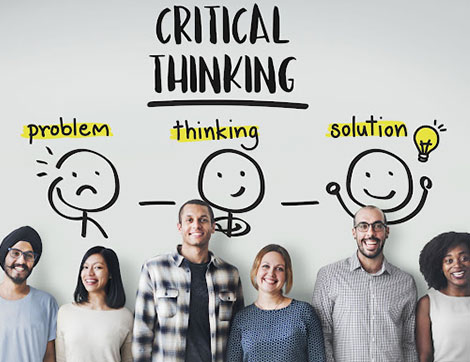
17 July, 2022
Encourage creativity and critical thinking in our students
As a training organisation, it is important that we encourage creativity and critical thinking in our students. By doing so, we can help them develop the skills they need to succeed in their chosen field. There are a number of ways we can encourage creativity and critical thinking in our students. Firstly, we can define […]
2 years ago

17 July, 2022
Preparing students for an increasingly interconnected world
This means teaching them not only the subject matter they will need to know in order to be successful in their chosen fields, but also the cross-cultural communication and collaboration skills they will need to work effectively with people from other countries and cultures. Let’s focus on some of the things a training organisation can […]
2 years ago

17 July, 2022
What can be done to ‘future-proof’ international education in Australia?
As Australia’s international education sector continues to grow, it is important to consider how to ‘future-proof’ the industry. As the world becomes increasingly globalized, it is more important than ever for students to receive a quality education that will prepare them for success in an international context. There are a number of factors that need […]
2 years ago

17 July, 2022
In an effort to reform education, Peter Dutton calls for change
Peter Dutton, the Opposition Leader has called for a change to the way the national policy framework for training and education is developed, monitored, and implemented to reform Australia’s education system. Mr Dutton said at a press conference that unions and activists are driving the current system, which negatively impacts the learning of students. According […]
2 years ago

17 July, 2022
Foster a culture of continuous learning
Continuous learning is a process whereby people keep up to date with the latest information in their field and improve their skills on an ongoing basis. It is often seen as an important part of professional development and can help people to stay ahead of the curve in their careers. Continuous learning is the key […]
2 years ago

17 July, 2022
Create an environment conducive to learning
One of the most important aspects of running a successful training organisation is creating an environment that is conducive to learning for your students. This means more than just providing a comfortable space for them to study – it also includes ensuring that they have access to the resources they need, feel safe and supported, […]
2 years ago

17 July, 2022
Think like a customer
When running a training and education institution, it is important to think like a customer. This means understanding their needs and wants and catering to them. It is also important to provide the best possible service so that they will return and recommend you to others. When you are running a training and education institution, […]
2 years ago
Archives
- July 2022
- June 2022
- May 2022
- April 2022
- March 2022
- February 2022
- January 2022
- December 2021
- November 2021
- October 2021
- September 2021
- August 2021
- July 2021
- June 2021
- May 2021
- April 2021
- March 2021
- December 2020
- November 2020
- May 2020
- February 2020
- December 2019
- November 2019
- October 2019
- September 2019
- August 2019
- July 2019
- May 2019
- April 2019
- March 2019
- December 2018
- November 2018
- October 2018
- September 2018
- August 2018
- July 2018
- June 2018
- May 2018
- November 2016
- October 2016

Sukh Sandhu
Chief Executive Officer
Sukh has been working in the VET and Higher Education Industry for over 20 years. In this time, he has held several roles with RTO’s including CEO roles for International Colleges and National Compliance and Quality Assurance Manager roles for several RTO’s, TAFE’s and Universities. Sukh has also worked for ASQA as a Business Systems Project Official.
Sukh has had extensive project management experience in risk management, compliance, administration and as a training consultant. He has extensive knowledge in government compliance standards and has participated in nearly one hundred audits across Australia and provided consultancy advice regarding ASQA/VRQA, TEQSA, ACPET, DET-HESG, VQF/Higher Education, ELICOS, NEAS, ANMAC, AHPRA, CRICOS, ESOS and ISO.
Sukh is a member of several independent professional organisations and government bodies including, ACPET, VELG, ACS, AITD, MARA, MIA, ISANA, APEX, IEEE, The Internet Society (Global Member), AISIP, IAMOT, ACM, OISV, APACALL, IWA, Eta Kappa Nu, EDSIG and several others.

 Enroll Now
Enroll Now Info Pack
Info Pack
